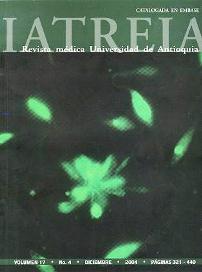Neurobiological aspects of psychopathy
DOI:
https://doi.org/10.17533/udea.iatreia.4117Keywords:
Antisocial personality disorder, Psychopathy, ViolenceAbstract
Psychopathy is a psychiatric construct characterized by a permanent pattern of affective deficit, and a lack of respect for the rights of other people and the social norms. The term is equivalent to the “Antisocial personality disorder” of the DSMIV-TR, and to the “Dissocial personality disorder” of the CIE-10. Since childhood, the affected individuals begin to display psychopathic characteristics and they have tendency to become involved in criminal behaviors but not to resocialice themselves with penitentiary programs; they reoffend more rapidly, with more cruelty and violence than non-psychopathic criminals. Etiopathogenesis of psychopathy is based on the complex interaction of biological and psychosocial factors. The objective of the present article is to provide an updated review about the neurobiological aspects of psychopathy among them the obstetric, neuroanatomical, neurochemical and genetic.
Downloads
Downloads
Published
How to Cite
Issue
Section
License
Papers published in the journal are available for use under the Creative Commons license, specifically Attribution-NonCommercial-ShareAlike 4.0 International.
The papers must be unpublished and sent exclusively to the Journal Iatreia; the author uploading the contribution is required to submit two fully completed formats: article submission and authorship responsibility.














